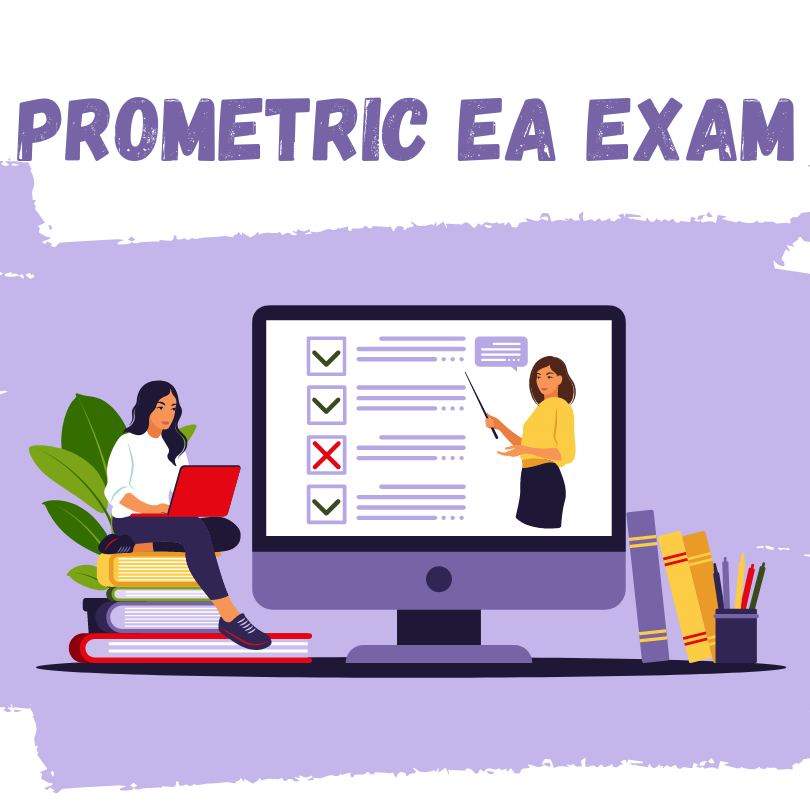Become an Enrolled Agent: Step-by-Step Guide
Passing the Enrolled Agent (EA) exam opens the door to...

Are you interested in pursuing a career in taxation? Have you been considering taking the IRS Enrolled Agents exam? The IRS Enrolled Agents exam is an industry-recognized test that measures your tax knowledge and skills. It’s administered by the IRS and is used to certify individuals as Enrolled Agents or EAs. Passing the EA exam is essential if you want to become an enrolled agent and represent taxpayers before the IRS on their behalf. In this post, we’ll go over everything you need to know about the IRS Enrolled Agents exam including what it covers, how to prepare for it, and more.
An enrolled agent is a tax professional who has earned the highest designation given by the Internal Revenue Service (IRS) to a private citizen. An enrolled agent is a person who has been authorized by the U.S. Department of the Treasury to practice before the IRS in all matters relating to tax preparation, representation, and planning. Enrolled agents are required to demonstrate expertise in federal taxation and ethically represent taxpayers before the IRS, including audits, collections, and appeals.
After passing the IRS Enrolled Agent exam, Enrolled Agents have unlimited earning potential due to the large number of potential clients they can serve, the wide variety of services they can provide, and the unique specialization they offer. Enrolled agents can work independently or in a firm setting and can charge fees based on the complexity of their services.
They are often hired by companies to prepare tax returns, advise on tax matters, or provide financial consulting services. Many Enrolled Agents also work as independent contractors and receive payment based on an hourly rate or a percentage of their total income generated from providing services. The potential for earnings is only limited by an individual’s knowledge and experience in the field.
An EA, or enrolled agent, is a tax professional who is authorized by the IRS to represent taxpayers before all administrative levels of the IRS. EAs are the only tax professionals who receive this federal credential that grants them unlimited practice rights to represent taxpayers before the IRS.
While all EAs must pass a three-part comprehensive IRS Enrolled Agents exam and meet continuing education requirements, they are not required to have a college degree in accounting or any other field. However, most EAs have experience working with taxes and preparing tax returns.
The IRS Special Enrollment Examination (SEE), or IRS Enrolled Agents exam, is a standardized test that must be taken and passed in order to become an Enrolled Agent (EA). Enrolled Agents are federally-licensed tax practitioners who have technical expertise in the field of taxation. The IRS Enrolled Agents exam is administered by Prometric and consists of three parts: Individual Taxation, Business Taxation, and Representation, Practice & Procedures.
The IRS Enrolled Agents exam is designed to measure the knowledge, skills, and abilities required of EAs to provide competent representation before the IRS. It consists of 100 multiple-choice questions, with a three and a half hour time limit for each part. To become an Enrolled Agent, applicants must pass all three parts of the exam within three years.
The IRS Enrolled Agents exam is a three and a half hour, computer-based test that is administered by Prometric test centers. Each exam consists of 100 multiple-choice questions, and covers a broad range of topics related to taxes and tax preparation.
To pass the IRS Enrolled Agents exam, candidates must correctly answer ~73% of the questions. The passing score for the EA Exam is set by the IRS, and is subject to change.
The exam covers a wide range of topics, including individual and business tax returns, federal tax laws and regulations, professional responsibility and ethics, and research. Additionally, candidates must demonstrate their knowledge of IRS forms and filing procedures.
The IRS Enrolled Agents exam tests competency in tax preparation and ethical practices. Specifically, test-takers must demonstrate knowledge of individual and business tax returns, ethics, representation, practice and procedures. The exam also covers topics such as federal taxation of individuals, partnerships, estates and trusts; the planning process for federal taxation; relevant tax laws and regulations; and the effects of special situations.
The IRS Enrolled Agents exam is considered to be a difficult test. However, with awesome study materials powered by A.I. the exams can be made to feel rather easy.

There is a 70%-74% pass rate on the IRS Enrolled Agents exam, which is higher than other professional exams, such as the CPA, which has an average pass rate of 45-50%. The IRS sets a scaled passing score of 105 out of 130, which translates to 72.2% in order to pass.
There is no required order in which to take the parts of the exam, so candidates can choose whichever part they feel better prepared for first. Because some of the content tested in Part 3 builds on content tested in Parts 1 and 2, we recommend sitting for Part 1 or 2. The topics tested in Parts 1 and 2 will help you decide which topics you are comfortable with. Take Parts 1 and 2 in order of your familiarity level, and then Part 3 last. Taking these considerations into account will help you master the topics so you can pass each part on your first try and become an EA sooner.
Enrolled agents (EAs) are tax professionals who have demonstrated technical competence in tax matters. EAs advise, represent and prepare tax returns for individuals, partnerships, corporations, estates and trusts. They are authorized to appear on behalf of taxpayers before all administrative levels of the Internal Revenue Service (IRS) for audits, collections and appeals.
To become an EA, a person must:
To get started, go to the IRS website and click on the “Apply for or Renew my PTIN” link. You’ll need to provide some basic information about yourself, such as your name and address. Once you’ve submitted your application, you should receive your PTIN within four to six weeks.
If you’re renewing your PTIN, the process is similar. Just log in to your account on the IRS website and follow the instructions. Again, you should receive your PTIN within four to six weeks.
If you have any questions about the PTIN process, you can contact the IRS directly. They have a dedicated phone line for tax professionals, which you can find on their website.
There are two ways to register for the IRS Enrolled Agents Exam: creating an online account with Prometric or filling out Form 2587. Creating an online account with Prometric is the easiest way to register, and we recommend this method. To create an online account with Prometric, simply go to their website and follow the instructions. Filling out Form 2587 is a bit more complicated, but it can be done if you prefer not to create an online account with Prometric. To fill out Form 2587, you will need to download the form from the IRS website and then fill it out by hand. Once you have finished filling out the form, you will need to mail it to the address listed on the form.

If you have passed the IRS Enrolled Agents examinations, you are ready to make your application. Complete Form 23 from Pay.gov and send with a $140 fee. Be sure to read the form for further details. The processing of your application should be complete within 90 days of submission. However, in order for the IRS to grant enrollment, applicants must pass a background check to ensure that no conduct on their part could disqualify them from practice before the IRS. Applications are handled in sequence based on when they are received.
In order to pass the suitability check for the IRS Enrolled Agents examination, applicants must meet certain criteria, including passing a background check. This assessment verifies that an individual has not been convicted of a felony or other serious crime, and that they have sufficient financial literacy and experience in accounting, taxation, and/or related fields. Additionally, applicants must demonstrate strong ethical standards.

Passing the Enrolled Agent (EA) exam opens the door to...

The journey to becoming an Enrolled Agent is both challenging...

Imagine gazing at a promising future as a tax professional.However,...

Achieving the status of an Enrolled Agent is a significant...

Are you envisioning a successful career as an Enrolled Agent?It's...